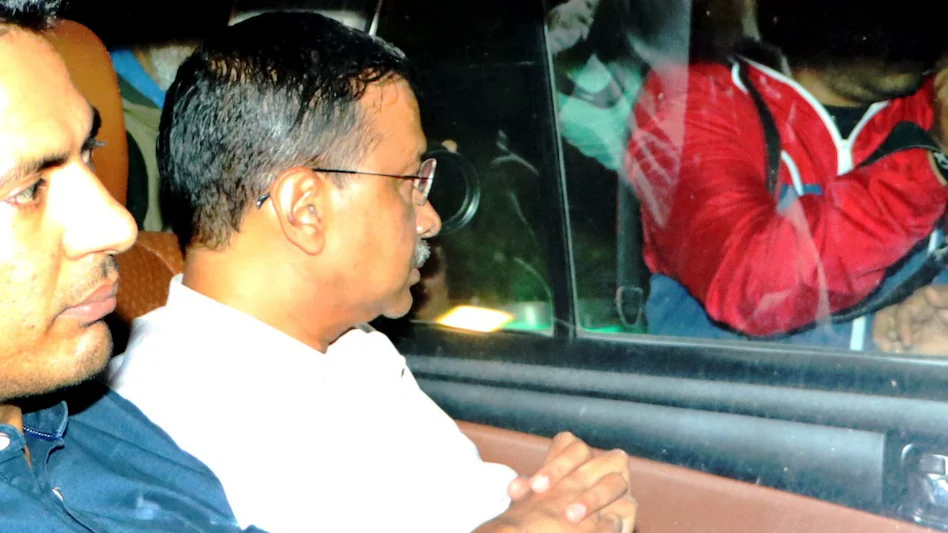Arvind Kejriwal, a prominent figure in Indian politics known for his vocal stance against corruption, found himself at the centre of controversy with his arrest, sparking national debate and discussion. In this article, we delve into the various aspects surrounding this event, analysing its implications and significance.
Table of Contents
Introduction – Arvind Kejriwal Arrest
Introduction
Arvind Kejriwal, the Chief Minister of Delhi and the leader of the Aam Aadmi Party (AAP), has been a polarizing figure in Indian politics. His relentless fight against corruption and advocacy for clean governance have garnered both admiration and criticism.
Reasons Behind the Arrest
The arrest of Arvind Kejriwal stemmed from a series of allegations and legal battles. Accusations ranged from political vendettas to legitimate charges, and dissecting these accusations is crucial to understanding the situation comprehensively.
Political Reactions
Following the arrest, various political parties and leaders voiced their opinions and reactions. This section will delve into the spectrum of responses from different quarters of the political landscape.
Legal Proceedings
This section will provide an overview of the legal process involved in Kejriwal’s arrest, including the charges laid against him and the subsequent judicial proceedings.
Public Response
The arrest of a prominent political figure like Kejriwal naturally stirred public sentiments. From protests to expressions of support, the reaction of the masses played a significant role in shaping the narrative around the event.
Media’s Role
The media’s coverage of Kejriwal’s arrest was extensive, influencing public opinion and perception. Analysing the role played by the media is essential in understanding how events are portrayed and interpreted by the masses.
Aftermath
The aftermath of Kejriwal’s arrest led to significant political repercussions and realignments. This section will explore the ripple effects of the event on the political landscape of the region.
Read what Smriti Irani and Rahul Gandhi Reaction
Conclusion
Arvind Kejriwal’s arrest serves as a critical juncture in Indian politics, highlighting the complexities and challenges inherent in the system. It underscores the ongoing struggle against corruption and the need for transparency and accountability in governance.
Continuation:
The arrest of Arvind Kejriwal marked a significant moment in Indian politics, reflecting the ongoing struggle between political adversaries and the quest for ethical governance. However, beyond the immediate repercussions, it also raised broader questions about the state of democracy and justice in the country.
Challenges to Democracy
Kejriwal’s arrest highlighted the challenges faced by democracy, particularly in the context of political vendettas and the misuse of power. It underscored the need for institutions to function independently and uphold the principles of justice and fairness.
Transparency and Accountability
The incident brought to the forefront the importance of transparency and accountability in governance. It emphasized the need for elected officials to be held accountable for their actions and for mechanisms to be in place to ensure transparency in decision-making processes.
Impact on Governance
The arrest of a sitting Chief Minister inevitably impacted governance in Delhi. It raised questions about the stability of the government and its ability to function effectively amidst legal and political turmoil. The event also highlighted the challenges faced by leaders advocating for systemic change.
Lessons Learned
From Kejriwal’s arrest, there are several lessons to be gleaned. It serves as a reminder of the complexities of political life and the importance of navigating legal and ethical challenges with integrity and resilience. It also underscores the need for citizens to remain vigilant and engaged in the democratic process.
Moving Forward
As the dust settles on this tumultuous event, it is imperative for all stakeholders to reflect on the lessons learned and chart a path forward. This includes strengthening democratic institutions, fostering a culture of accountability, and working towards a more transparent and inclusive political system.
In conclusion, Arvind Kejriwal’s arrest was more than just a legal matter; it was a reflection of the broader issues facing Indian democracy. It served as a wake-up call for the need to uphold the values of justice, transparency, and accountability in governance. As the nation moves forward, it must strive to address these challenges and build a more robust and resilient democracy.
FAQs
- What were the specific charges against Arvind Kejriwal? The charges against Kejriwal varied, including allegations of corruption, misconduct, and other legal infractions. Each charge had its own intricacies and implications.
- How did the public react to Kejriwal’s arrest? The public response was diverse, with some expressing outrage over what they perceived as political persecution, while others welcomed the legal action against a public figure accused of wrongdoing.
- Did Kejriwal’s arrest lead to any significant political changes? Yes, Kejriwal’s arrest prompted shifts in alliances and political strategies, reshaping the dynamics of the political landscape in Delhi and beyond.
- What role did the media play in shaping the narrative around Kejriwal’s arrest? The media’s coverage played a crucial role in shaping public perception and opinion regarding Kejriwal’s arrest, with different outlets offering varying perspectives on the event.
- How can similar incidents be prevented in the future? To prevent similar incidents, there needs to be a concerted effort to uphold the principles of democracy, ensure judicial independence, and promote transparency and accountability in governance.


